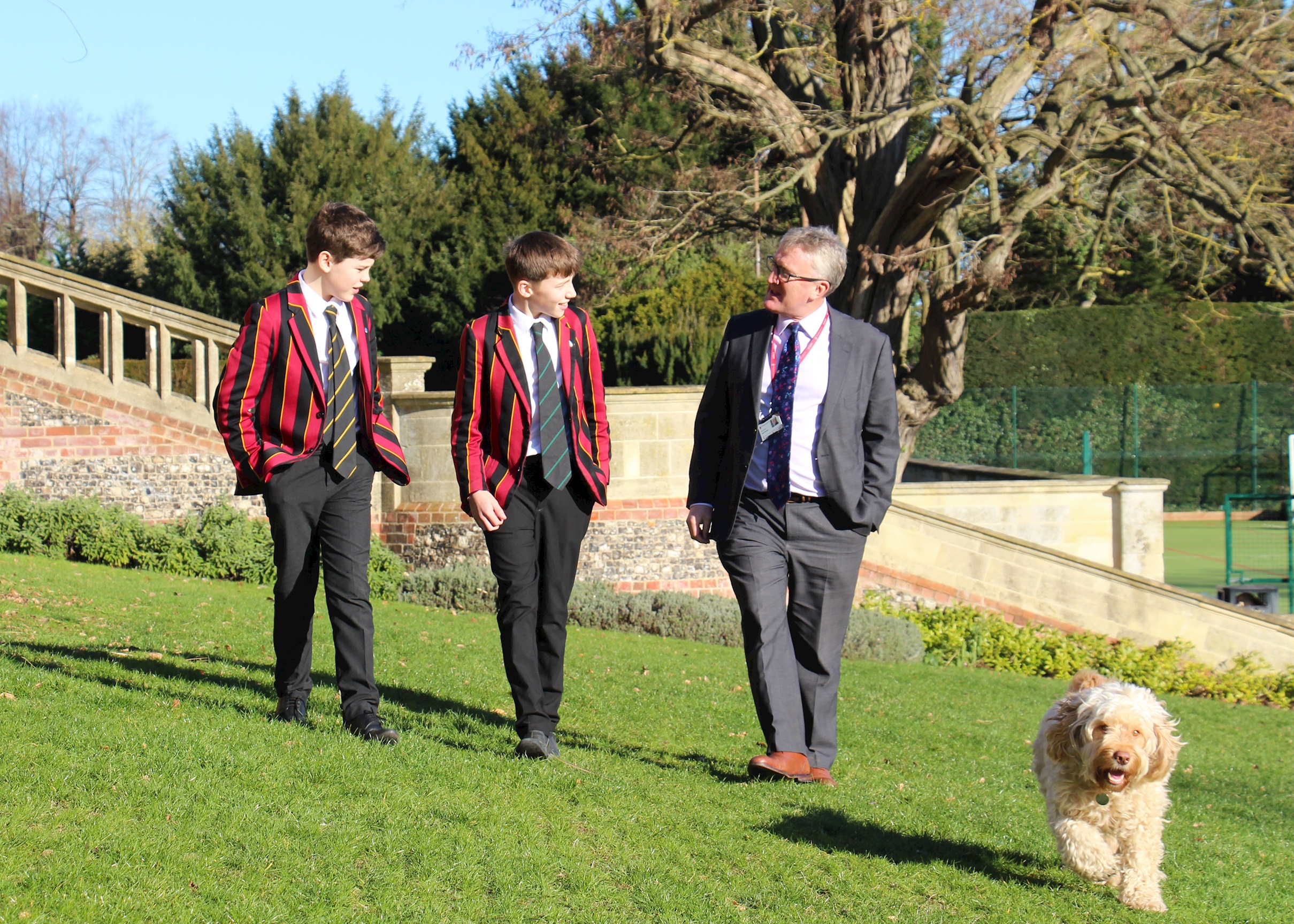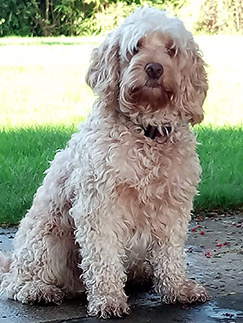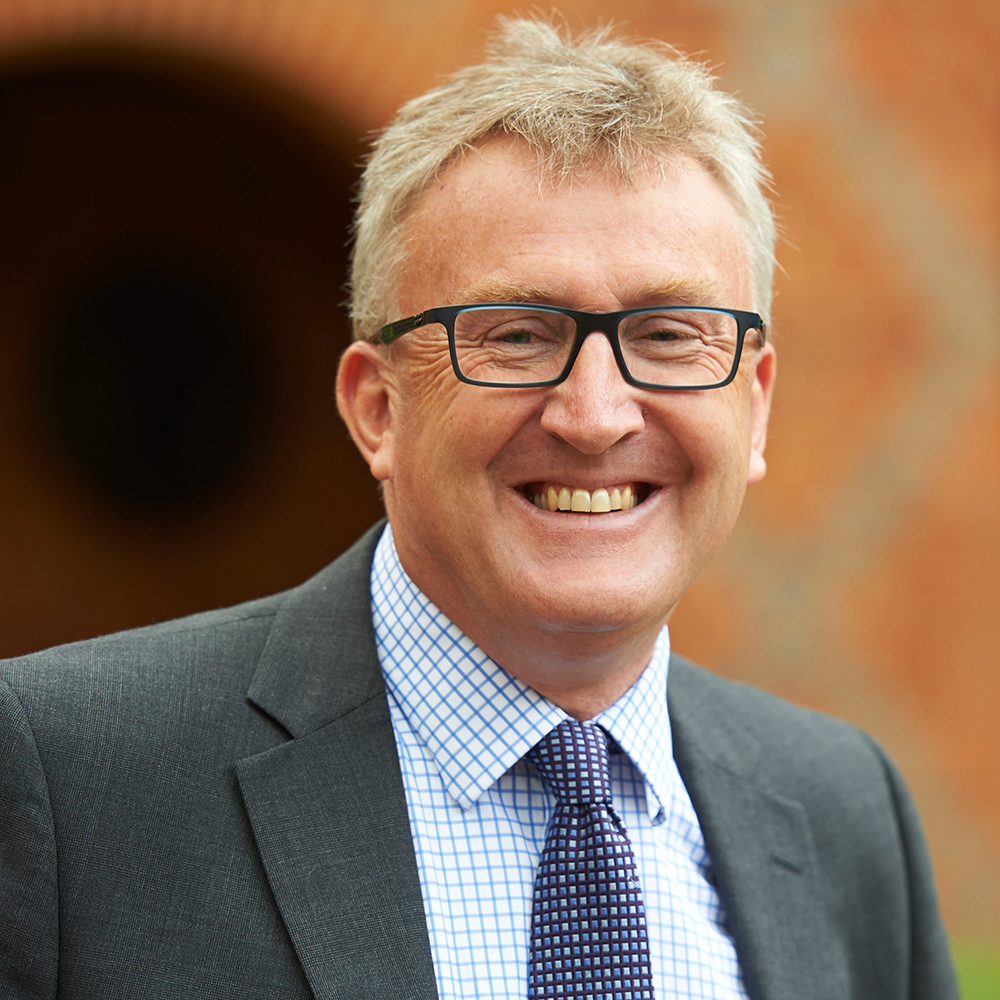
After probably one of the most unusual weeks in Shiplake’s history, we chatted (virtually) to Mr Nick Brown, the College’s Deputy Head Pastoral, to find out about his time at Shiplake and his tips for pupils and parents to help them through this unprecedented time.
How long have you been at Shiplake and what roles have you held both previously and now?
This is my twenty first year at Shiplake! I arrived in 1999 as Head of History. After two years I became Housemaster of Skipwith, which was all boarding then, and after six years there, I moved to College House where I was Housemaster for seven years. I was Assistant Head Co-Curricular for a few years during which time I established our Tuesday and Friday co-curricular programme. I have been Deputy Head Pastoral for four and a half years now.
How has Shiplake changed during your time here?
It's bigger! When I started I think there were about 280 pupils, only six or seven girls and no Lower School. That said, the ethos and atmosphere have not changed. We are still a (relatively) small and (very) friendly school. That's what I love about Shiplake, the welcoming atmosphere and the family feel it has. Physically, the site has changed. In 1999 there was no College or Gilson House, no Rose Garden Cottages and no John Turner Building.
What would you say is the best thing about Shiplake College?
The people! Pupils, parents and staff are wonderful. By and large all are positive, supportive and great fun to work alongside. I get very upset when pupils spoil the atmosphere by being unkind and thoughtless.
What does being Deputy Head Pastoral involve?
My most important role is to ensure that all pupils are safe. That bit comes from my role as Designated Safeguarding Lead. If pupils are in danger of any form of harm it is my responsibility to ensure their safety. Pastorally, I oversee the wellbeing of all pupils and work closely with house and medical staff as well as The Rev. I meet with these colleagues weekly and discuss any concerns we might have. I also try to give pupils as much voice as possible by holding year group forums and informal chats. Ernie, my three-year-old Cockerpoo helps me with all of this. He comes to school with me every day and often helps out when I meet pupils. When he's not in meetings he is usually outside at break and lunchtimes saying hello to as many people as possible.

We are obviously experiencing unprecedented times with COVID-19. What are your top tips for pupils during the next few weeks and possibly beyond?
It's a really difficult time and especially for people who are easily bored. It is also a great time to learn a new skill, read a new book or get those jobs done that you have been meaning to get done for ages. Exercise is crucial and I hope everyone has been engaging with the Joe Wicks exercise classes. For me, apart from teaching remotely, preparing resources and keeping up with meetings and admin, I have just completed a massive jigsaw, pottered in the garden, nearly finished my current book, cut the grass and am about to give Ernie a long-overdue haircut. Spurred on by Oliver, my youngest son, I have even joined him in the garden for a gym session. Oh, and lots of dog walks.
What advice would you give to parents to help their children through this time?
Do things together! Eat meals together, chat and play games or do jigsaws. That said, I read an article the other day that said children need to learn to cope with boredom, so don't fill up their day too much. I also have a little plea! Please keep an eye on their use of social media; impose a time limit and make it clear that you have every right to see what they are up to on their devices.
As a history teacher, what part of history do you love teaching the most and why?
It will come as no surprise to my colleagues that it's the Tudors. I've taught this subject at A Level for years and find the whole period fascinating. There are so many myths surrounding this family plus they are colourful and intriguing. Don't get me started!
What books/TV/Films would you recommend for anyone interested in finding more out about this part of history?
There are loads of heavy textbooks but also many great historical novels about the period. My own favourites are the Shardlake books by C. J. Sansom. The latest one is called Tombland. They follow the exploits of lawyer-detective Matthew Shardlake. As far as films go, try the classic A Man for All Seasons, about Thomas More and his friendship with Henry VIII.
If you could visit any historical site in the world, where would it be and why?
There are still lots of places in this country that I haven't visited; castles etc. Abroad, I have a burning ambition to visit Carcassonne in the south of France. I read a series of novels starting with Labyrinth by Kate Mosse (not the model) and fell in love with this medieval gem (Carcassonne, not Kate Mosse).
What do you like to do in your spare time?
I love listening to music (mostly classical), singing (mostly classical), playing golf (erratically) and walking Ernie.

What does the future hold for Mr Brown?
Who knows. I'm not a great planner but I am looking forward to getting back to normality, whenever that might be.
You often encourage pupils to think of and share three good things, which make them happy or thankful. What are your three good things for this week?
The week before last I managed three sets of #3GoodThings in one day. I have a colleague whose daughter managed 27 in one day!
Today they are 1) Seeing so many pupils, parents and staff engaging positively in remote learning and still being able to chat to their friends; 2) The sun is still shining; 3) Feeling slightly smug having done a garden gym session.





















